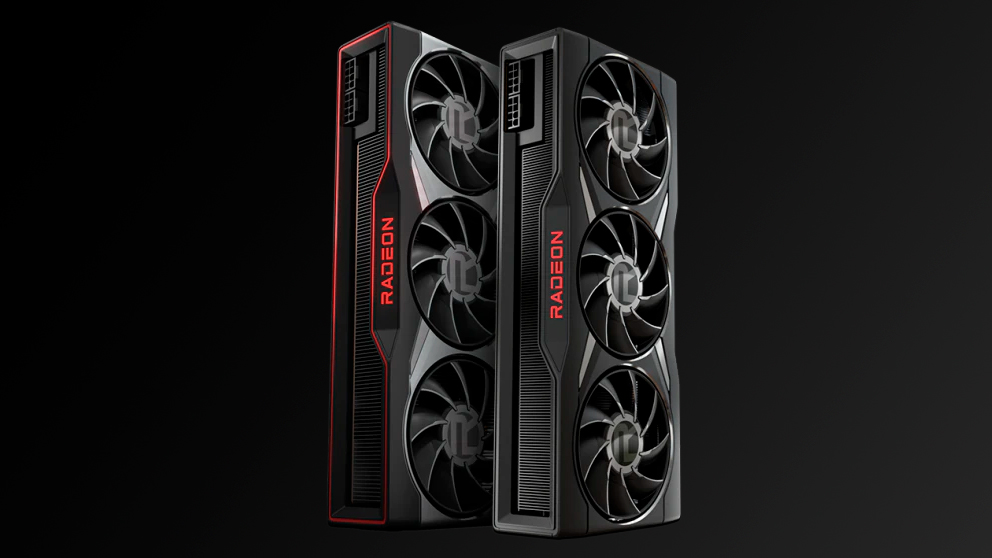
AMD's gaming solutions revenue decreased by 48% year-over-year in the first quarter of 2024 as sales of the company's processors for Sony's and Microsoft's game consoles declined and demand for Radeon discrete graphics cards lessened. The company expects its gaming revenue to decline further in the second quarter and for the rest of the year before it has a chance to rebound in 2025.
So, does that mean there won't be any new Radeon RX 8000-series RDNA 4 GPUs this year? AMD isn't saying anything officially yet, but it wouldn't be shocking to see the company delay the launch of RDNA 4 given the apparently weak sales of RX 7000-series GPUs.
A 48% YoY decline for the first quarter of 2024
AMD's gaming business earned $922 million in Q1 2024 — down 48% year-over-year (from $1.757 billion) and down 33% quarter-over-quarter (from $1.368 billion). AMD's gaming segment still posted an operating income of $151 million, but that's a significant decline from $314 million a year ago. As a percentage of revenue, the gaming unit's operating income totaled 16% in Q1 2024 and 18% in Q1 2023.
"First quarter semi-custom SoC sales declined in line with our projections as we are now in the fifth year of the console cycle," said AMD CFO Jean Hu on a conference call with analysts and investors (via SeekingAlpha). "In gaming graphics, revenue declined year-over-year and sequentially. We expanded our Radeon 7000-series family with the global launch of our Radeon RX 7900 GRE and also introduced our driver-based AMD Fluid Motion Frames technology that can provide large performance increases in thousands of games."
Consoles and GPUs down
It's believed that system-on-chips (SoCs) for Microsoft's Xbox Series X|S and Sony's PlayStation 5 account for the lion's share of AMD's gaming business. These consoles are now in their fifth year on the market, so demand for these products is understandably waning. That's why the platform holders have reduced their purchases of AMD processors.
When it comes to sales of discrete GPUs, the situation is a bit more complex. Sales of add-in-boards for desktops decline seasonally in the first quarter every year. While AMD gained market share in Q4 2023, controlling 19% of the market, according to Jon Peddie Research, the company obviously sold fewer Radeon GPUs for desktops in Q1 2024.
Moreover, the company did not have big design wins with its Radeon RX 7000M GPUs for laptops — which dramatically impacted its gaming revenues as, volume-wise, such GPUs typically sell in similar quantities as those for desktops.
Gaming revenue may not recover until 2025
While the Radeon RX 7900 GRE is one of the best graphics cards around, this addition is arguably not enough to make the whole lineup significantly more competitive. This is why AMD expects sales of its gaming solutions to decline by around 30% year-over-year in the first half of 2024, and expects even worse results in the second half of the year.
"[The] gaming segment, based on current demand signals, revenue to decline by significant double-digit percentage," said Hu. "[…] Based on the visibility we have, the first half, both Q1 [and] Q2, we guided down sequentially more than 30%. We actually think the second half will be lower than first half. That is basically how we are looking at this year for the gaming business."
AMD's predictions suggest that neither Microsoft nor Sony plan to refresh their Xbox Series X|S or PlayStation 5 consoles this year, as otherwise AMD would have expected an uptick in its gaming revenue. The expectations may well mean that the company does not have huge expectations for its discrete GPU sales, either, and it's unlikely that notebook makers will pick up the Radeon RX 7000M-series products this late in the life cycle.
As for Radeon RX 8000-series RDNA 4 GPUs, it's unclear whether they'll launch this year at all — and, if they do, whether they'll ship in quantities significant enough to tangibly impact AMD's sales. There are rumors that AMD may not even try to make a larger high-end RDNA 4 chip, opting to instead go after the mainstream and budget markets. We've seen that in the past (e.g. the Polaris RX 400-series), though continuing to cede the lucrative high-end market to Nvidia hasn't done Radeon GPUs any favors.







